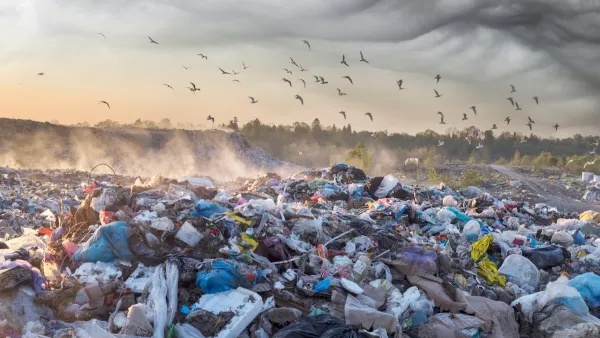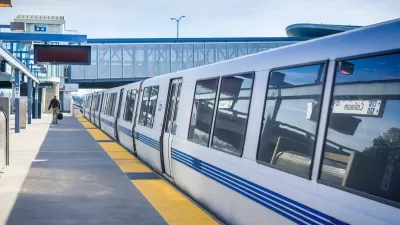Under new state regulations, Colorado transportation projects will be required to reduce GHG emissions and promote more sustainable transportation modes.

New rules from the Colorado Transportation Commission will shift the state's focus from road construction to more sustainable modes of transit in an effort to reduce greenhouse gas emissions. An article by Noelle Phillips and Jon Murray outlines the new regulations, which transportation commissioner Kathleen Bracke called a "critically important milestone." Starting February 14, future projects will be required to assess the impact of new projects on emissions and switch to cleaner alternatives if the projections surpass a set limit. "The Department of Transportation’s commissioners hope the new rules build on the state’s push to put more electric vehicles on the road while improving mass transit, biking and walking options."
The rules received pushback from critics who worry that rural, car-dependent areas could suffer disproportionately from reduced transportation funding. Business groups and some local leaders in Colorado's burgeoning Northern Front Range region claim that the rapid growth of their communities indicates a need for roadway expansions, arguing that the Commission is overstepping its legal authority.
Meanwhile, environmental groups say the regulations don't go far enough to make the drastic reductions in emissions needed to mitigate the effects of climate change and air pollution. While the state has pledged to get one million electric vehicles on its roads by 2030, environmentalists say the benefits won't accrue fast enough.

Planetizen Federal Action Tracker
A weekly monitor of how Trump’s orders and actions are impacting planners and planning in America.

Congressman Proposes Bill to Rename DC Metro “Trump Train”
The Make Autorail Great Again Act would withhold federal funding to the system until the Washington Metropolitan Area Transit Authority (WMATA), rebrands as the Washington Metropolitan Authority for Greater Access (WMAGA).

The Simple Legislative Tool Transforming Vacant Downtowns
In California, Michigan and Georgia, an easy win is bringing dollars — and delight — back to city centers.

The States Losing Rural Delivery Rooms at an Alarming Pace
In some states, as few as 9% of rural hospitals still deliver babies. As a result, rising pre-term births, no adequate pre-term care and "harrowing" close calls are a growing reality.

The Small South Asian Republic Going all in on EVs
Thanks to one simple policy change less than five years ago, 65% of new cars in this Himalayan country are now electric.

DC Backpedals on Bike Lane Protection, Swaps Barriers for Paint
Citing aesthetic concerns, the city is removing the concrete barriers and flexposts that once separated Arizona Avenue cyclists from motor vehicles.
Urban Design for Planners 1: Software Tools
This six-course series explores essential urban design concepts using open source software and equips planners with the tools they need to participate fully in the urban design process.
Planning for Universal Design
Learn the tools for implementing Universal Design in planning regulations.
Smith Gee Studio
City of Charlotte
City of Camden Redevelopment Agency
City of Astoria
Transportation Research & Education Center (TREC) at Portland State University
US High Speed Rail Association
City of Camden Redevelopment Agency
Municipality of Princeton (NJ)





























